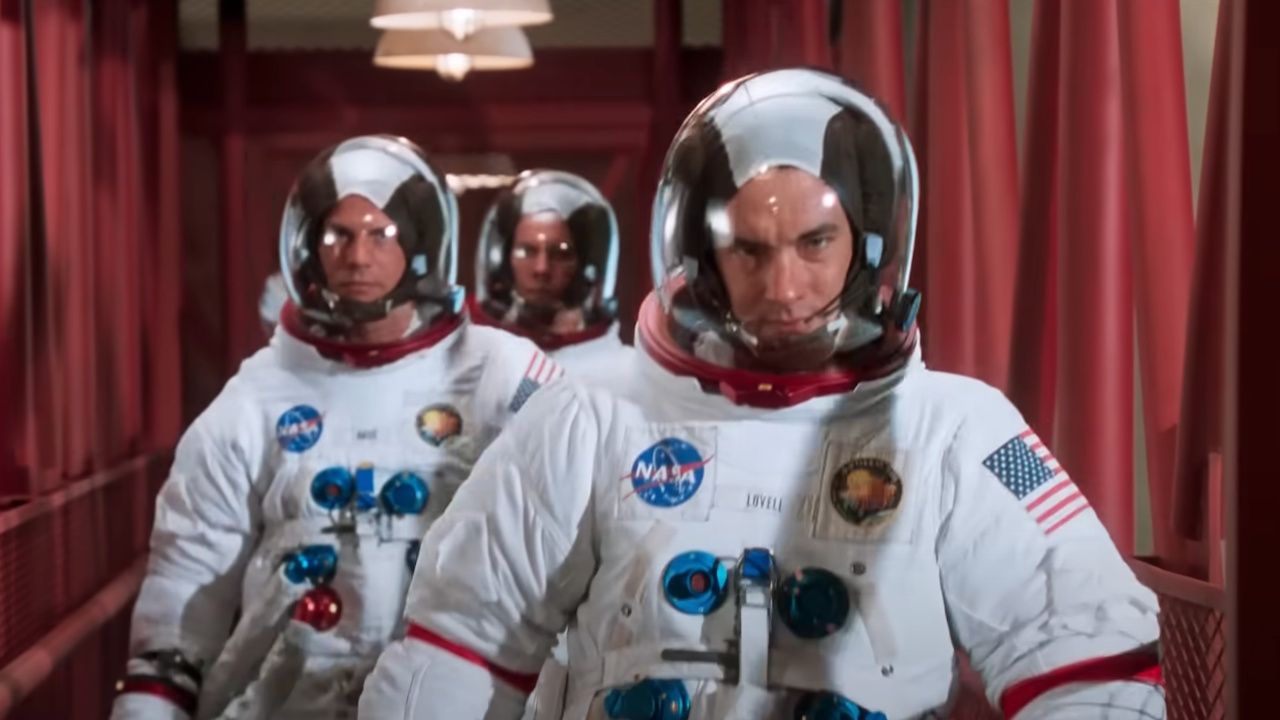
Ron Howard’s 1995 film, *Apollo 13*, is widely considered one of the best movies of the 1990s. It received nine Academy Award nominations and won two, though it didn’t win for Best Picture. Knowing the true story of the ill-fated Apollo 13 mission and the astronauts Jim Lovell and his crew only makes the film more gripping and intense. I recently rewatched it after many years and was particularly struck by a specific moment within the story.
I’ve always been fascinated by space, and *Apollo 13* is one of my favorite movies about it. When I first saw it, I was most drawn to the scenes of the astronauts – Tom Hanks, Bill Paxton, and Kevin Bacon – struggling inside their damaged spacecraft. But on a recent viewing, I was really struck by Ed Harris’s portrayal of Gene Kranz and the dedication of the team on Earth who worked tirelessly to save the astronauts.
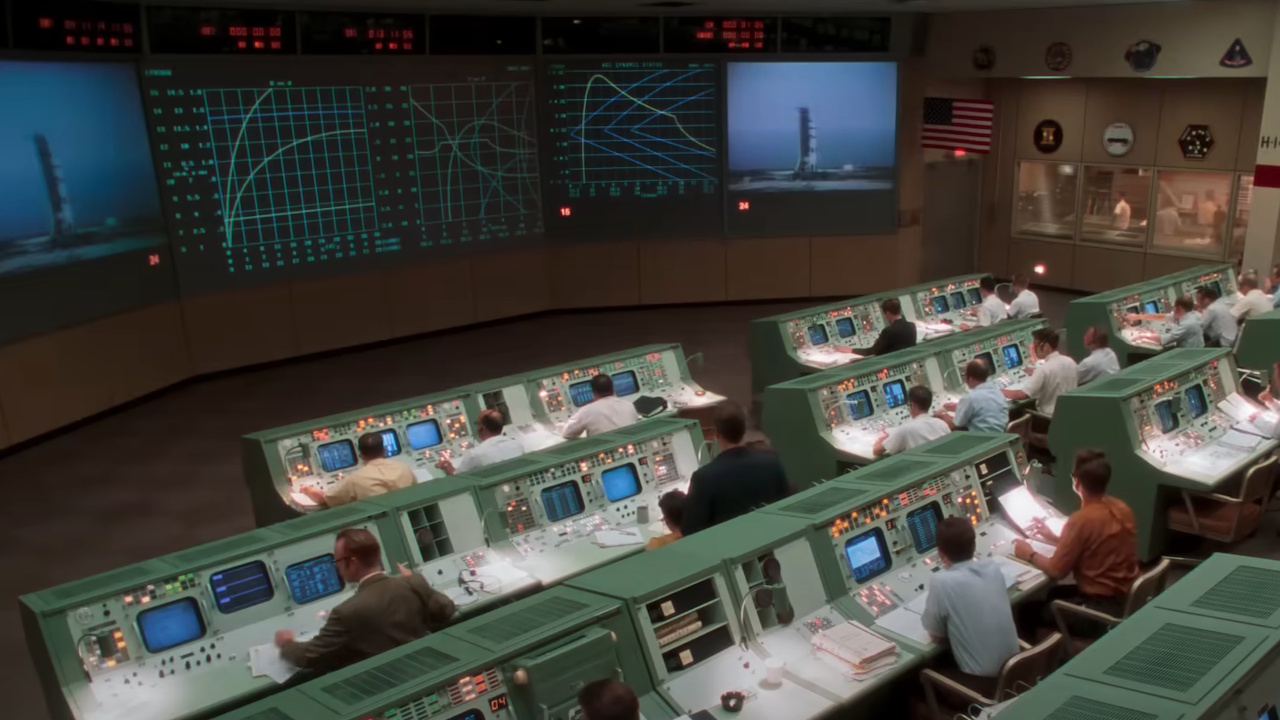
The Space Emergency Is Straight-Up Terrifying, But I Was More Fascinated By The Rescue Efforts This Time
Tom Hanks, Kevin Bacon, and Bill Paxton deliver powerful performances as the astronauts Jim Lovell, Jack Swigert, and Fred Haise in *Apollo 13*. The film effectively establishes a strong connection between the audience and the crew by dedicating the first hour to showcasing their extensive preparation, enthusiasm, and years of dedication leading up to the launch.
Their hopes of landing on the moon quickly disappeared, and their survival seemed unlikely. I used to be completely absorbed in their journey, especially with Tom Hanks’ powerful performance, but revisiting it now, I realize I spent the stressful scenes on the spacecraft wondering about the rescue teams back in Houston and how things were progressing there.
I honestly think it was that 1970s technology (or lack thereof) that I found so fascinating.
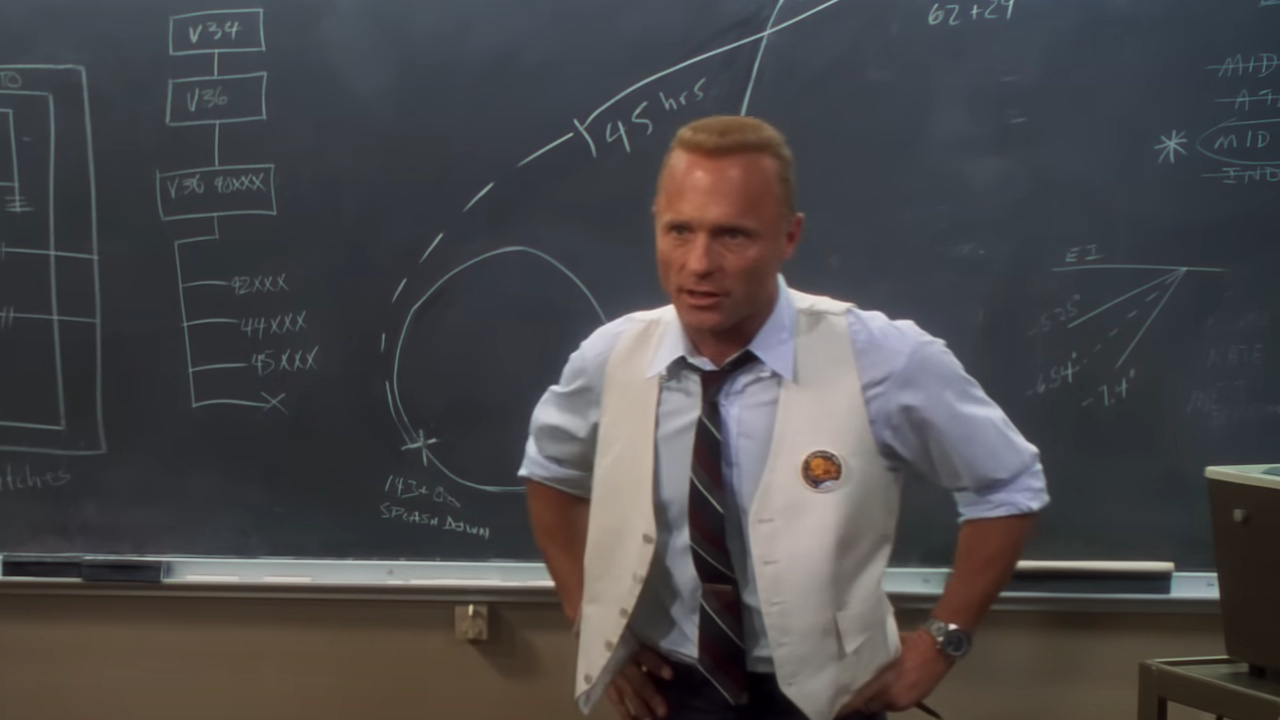
My Mind Was Blown By What Mission Control Was Able To Accomplish Without Modern Technology And A.I.
As someone born between Millennials and Gen Z, I grew up knowing how to do things the ‘old-fashioned’ way – like solving math by hand and researching at the library. But after having a smartphone and reliable internet for so long, and with tools like AI now available, I have to admit I’ve become just as reliant on technology as everyone else.
Honestly, what struck me most about watching this film was the sheer ingenuity of the Mission Control team. Knowing lives hung in the balance, and seeing them calculate re-entry angles *by hand* – with pencils and paper! – was incredible. It really hit home how much we rely on computers now; the pressure they were under, with absolutely no room for mistakes, is something you just don’t see anymore. It made me realize how much simpler things would be today, just plugging the numbers into a machine, but it also underscored the brilliance of these individuals.
When I first watched *Apollo 13* back in the 90s, I didn’t realize how much technology would change. That’s why the film’s old-fashioned, analog technology didn’t strike me as remarkable then, but it really stood out this time. In 1995, my biggest tech experience was probably using a pretty basic search engine.
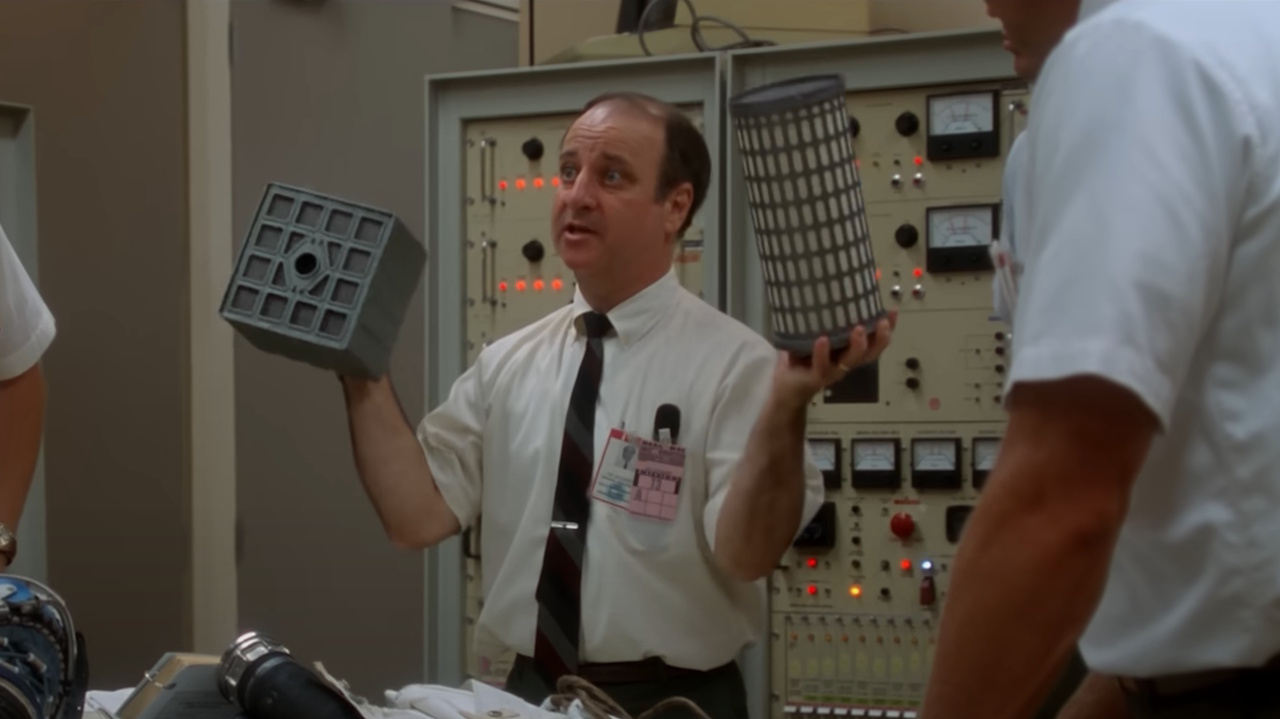
What Was More Fascinating Than When They Built That Filter Using Only Things That Were On The Ship?
A really impressive moment was when the crew had to build an air filter from spare parts on the spacecraft. Carbon dioxide levels were rising dangerously, and they had to creatively solve the problem with limited resources – it was a true example of ingenuity under pressure.
I’d be fascinated to watch a documentary about how the Apollo 13 crew ingeniously fixed their air filter using only what they had on board – things like the flight plan cover, plastic bags, and duct tape. Their problem-solving skills were incredible, like something out of a MacGyver episode! It’s amazing to think they accomplished such a feat without any online help or instructions.
Ken Mattingly, played by Gary Sinise, helped save his fellow astronauts even though he couldn’t fly on the mission itself because he’d been exposed to measles. Back on Earth, he painstakingly rebuilt the conditions inside the Aquarius spacecraft – the “lifeboat” – to determine how to restart it using minimal power. It was a slow and challenging process, but the team remained calm and persistent until they found a solution.
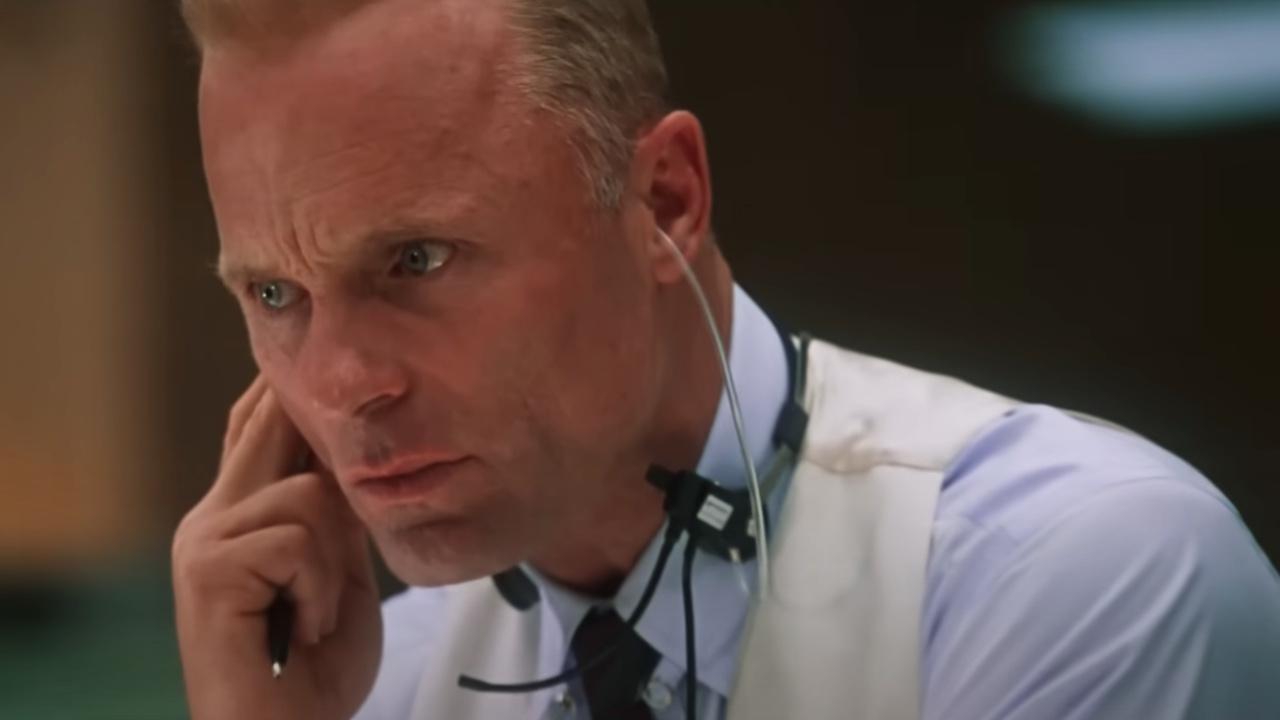
Ed Harris’ Award Nominations Make So Much Sense
You know, I always *heard* how great Ed Harris was as Gene Kranz in Apollo 13, but honestly, it didn’t really hit me just how amazing he was until I watched it again recently. I mean, the way he commanded everything, staying so calm under pressure? Incredible. It’s easy to forget he was nominated for an Oscar and Golden Globe, and actually *won* the Screen Actors Guild Award for that role – he totally deserved it!
While the iconic line, “Failure is not an option,” wasn’t something Gene Kranz actually said, it perfectly captured his spirit and the dedication of the mission. What really impressed me about Ed Harris’s performance was how calmly he handled intense pressure.
I’ve definitely had stressful days at work, but nothing compares to the incredible situation Gene Kranz faced in the movie. While I’ve panicked over small problems, Kranz remained remarkably calm throughout the nearly two and a half hour film, barely even raising his voice – maybe just once.
He relied on the advice of his team, empowered them to handle their responsibilities, and prioritized finding solutions over dwelling on issues. His main goal was to safely bring his men home, without getting bogged down in legal concerns or bureaucratic procedures that might be expected today.
I’m equally impressed by the real Gene Kranz and Ed Harris’s performance as him. It’s a testament to how good the movie is that I can’t decide which one is more remarkable.
Apollo 13 is a truly gripping survival film, and I was relieved to find it held up to my expectations. Revisiting it after many years, I found myself noticing and appreciating different parts of the incredible rescue mission, all while still being captivated by the beauty and danger of space.
Read More
- Clash Royale Best Boss Bandit Champion decks
- Vampire’s Fall 2 redeem codes and how to use them (June 2025)
- Mobile Legends January 2026 Leaks: Upcoming new skins, heroes, events and more
- World Eternal Online promo codes and how to use them (September 2025)
- How to find the Roaming Oak Tree in Heartopia
- Clash Royale Season 79 “Fire and Ice” January 2026 Update and Balance Changes
- Best Arena 9 Decks in Clast Royale
- Clash Royale Furnace Evolution best decks guide
- Best Hero Card Decks in Clash Royale
- FC Mobile 26: EA opens voting for its official Team of the Year (TOTY)
2025-09-16 14:09